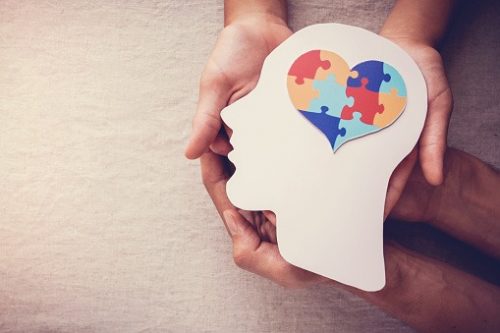Dealing with depression, especially in severe cases, requires treatment which includes therapy and medication. Usually, these two work hand-in-hand to provide you with an assurance of controlled depressive symptoms. However, for some mild to moderate levels of depression, a healthcare professional may require you to work on other helpful strategies instead of taking prescribed drugs.

Source: pixabay.com
For instance, you consulted your counselor about your mental state and told him that you want to get rid of your depression without taking any pills, then that is possible. But that will only work when your counselor assists you in the proper ways, which can include some of the things below.
Improving Mental Health Without Medication
The first thing you need to understand is that your mental and emotional health recovery lies within your ability to focus on the matter. If you are too preoccupied with other things and that you seemed to be a little hesitant with what you do, you will never achieve your goal of better health. So before making any decisions that can affect your overall well-being, you need to make sure that you are fully committed to it.
Exercise Regularly – You can try improving your mental health without taking medications by staying active. Regular exercise is much better than taking too many drugs because of its natural ability to release toxins and increase the production of happy hormones. Thus, a guaranteed reduced feeling of anxiety, stress, and depression is achieved. Other health benefits of exercise include lowering the risk of heart disease, lowering blood cholesterol levels and blood pressures in the body. It also greatly contributes to keeping your bones, muscles, and joints strong. Exercise also helps with weight management and quality sleep issues.
Eat A Balanced Diet – There is no greater quantity of happiness when you supply your body with the right amount of food. That explains why many people turn to their favorite food for comfort when they feel stressed, sad, anxious, and depressed. But it is essential to realize that not all food that you consume can provide benefits. Thus, instead of eating junk food and other foods that contain preservatives, try considering fruits and vegetables. Also, stick with a balanced meal that contains enough protein, vitamins, and minerals. That way, the food you consume can provide you with strong bones and teeth, heart health, improved memory and brain development, and better mood and energy levels.

Source: pixabay.com
Talk To Someone – Dealing with mental health issues is related to emotional struggle. To somehow get rid of unwanted feelings and thoughts, always consider talking to someone about it. You must express yourself, whether good or bad. You need to understand the importance of venting out and releasing that buildup of emotional tension. Accept the fact that you can’t control things and that you need supportive people to be around. Talking about your issues with others allows you to look at the problem from a different perspective. Thus, stay in touch with your family and friends. Spend quality time with your loved ones, and make sure to allow yourself to feel special.
Avoid Toxicity – There are instances that you might feel as though you need to be worried to protect yourself in your relationships. However, this worry, if too much, can keep you from feeling compassionate towards yourself. In the worst case, you might eventually develop resentment and respond in selfish ways you never imagine you could. To avoid that, you need to set out rules and keep yourself away from toxicity. That way, you can manage your emotional and mental health better. Because if you keep on thinking negatively and surround yourself with lots of bad vibes, it could trigger the severity of your depression.
Practice Meditation – Another thing that your counselor might tell you to do to keep your mental state healthy is to meditate. Meditation is one of the most effective self-awareness strategies that allow you to focus on present things. It gives you an edge on seeing your problems from a different perspective. It helps you build skills in managing your thoughts, feelings, and reactions, especially on stressful occasions. Meditation increases your patience and tolerance and helps reduce negative emotions. It promotes overall wellness, too, by generating kindness towards yourself and to your environment. Meditation also helps in developing creativity, imagination, productivity, and increased memory.

Source: pixabay.com
Takeaway
These useful suggestions are only a few of the things that your counselor might recommend to control your depressive symptoms. There are still many other mental exercises to boost focus and memory that you can try to do to keep your overall mental health stable. But in case you already tried everything you could, but you feel like your efforts are not paying off, seek professional help immediately. That way, your therapist can provide you with other alternative treatment that still does not require medication such as CBT or cognitive behavioral therapy.